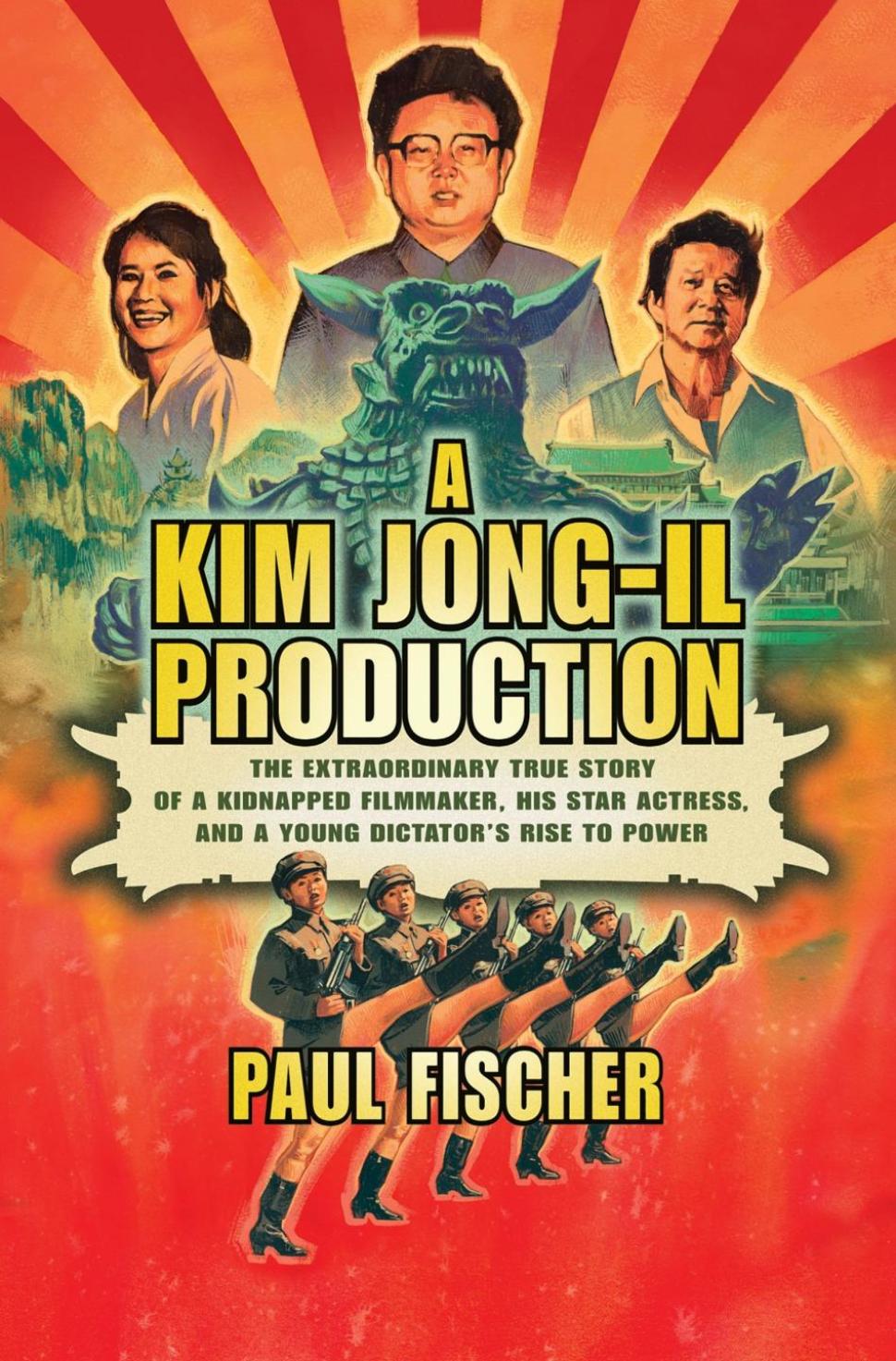13 Apr / A Kim Jong-Il Production: The Extraordinary True Story of a Kidnapped Filmmaker, His Star Actress, and a Young Dictator’s Rise to Power by Paul Fischer

 The more I read about North Korea, the more flabbergasted I become that THREE generations of Kim dictators have managed to shutter out most of the world for this long. So tragically epic or utterly preposterous – with little in between – are the limited glimpses we’ve managed into the isolated dictatorship, that all things North Korean seem to fall into the ‘you can’t make this stuff up’-category. Only the truth, ironically, could be this shockingly unbelievable.
The more I read about North Korea, the more flabbergasted I become that THREE generations of Kim dictators have managed to shutter out most of the world for this long. So tragically epic or utterly preposterous – with little in between – are the limited glimpses we’ve managed into the isolated dictatorship, that all things North Korean seem to fall into the ‘you can’t make this stuff up’-category. Only the truth, ironically, could be this shockingly unbelievable.
Lest you begin doubting before even opening the book – or before hitting ‘play’; Stephen Park (yes, of Fargo fame) makes for a fittingly droll narrator – filmmaker/producer Paul Fischer addresses any potential non-believers right after the Table of Contents. From original memoirs and articles, to news archives and academic research, to almost 50 personally-conducted interviews, to Google Earth, to personal global travel, Fischer has clearly invested in accuracy; the book ends with nine single-spaced pages of merely “selected” bibliography – with an implication that reams more were relied upon to write this book – in case doubting naysayers might be inspired to fact-check further.
Yes, you’ll find Production on nonfiction shelves, but you’ll most likely read it as an unputdownable thriller. Long before PSY became an international headliner, Shin Sang-Ok and Choi Eun-Hee were Korea’s first megastars. As a director, Shin defined – and refined and redefined – Korean cinema; he married his muse and leading lady, Choi, who, more than half a century later, is still regarded as Korea’s greatest actress. In a South Korea devastated by war, Shin and Choi together built Korean cinema to international acclaim. Sadly, albeit not unexpectedly, as with too many supernovas, happy endings were not to be: by the late 1970s, the glamour couple had divorced, torn apart by Shin’s (clichéd) infidelity. Choi retreated into quiet motherhood; Shin’s career had all but stalled, although he was still chasing deals around the world.
North of the DMZ, Kim Jong-Il – not yet the Supreme Leader – fed his obsession with films. He hatched a ludicrous plan to get North Korea onto the international cinematic stage … and somehow he made it work. First he grabbed Choi. Then he took Shin. Choi lived in relative luxury. Shin was imprisoned and tortured; he proved harder to break even after two escape attempts. Years passed before the two even realized they were both trapped in North Korea. When they were finally reunited as Kim’s ‘guests,’ they had little choice but to help make Kim’s celluloid dreams come true …
With Fischer’s own cinematic experience, surely a film adaptation must be coming to a screen near you. Even as his three-line subtitle accurately summarizes the story, Fischer knows just how to keep an audience hooked, regardless of the wide swaths of narrative that have already been revealed. If the farcical travesty that was The Interview – how can the abusive machinations of an inhuman totalitarian regime be considered funny?! – can generate such widespread international response and attention, surely Fischer deserves the opportunity to shoot a better alternative. Given the effort he’s already poured onto the page, clearly, he’s prepared and ready to take this dramatic helm.
Readers: Adult
Published: 2015
